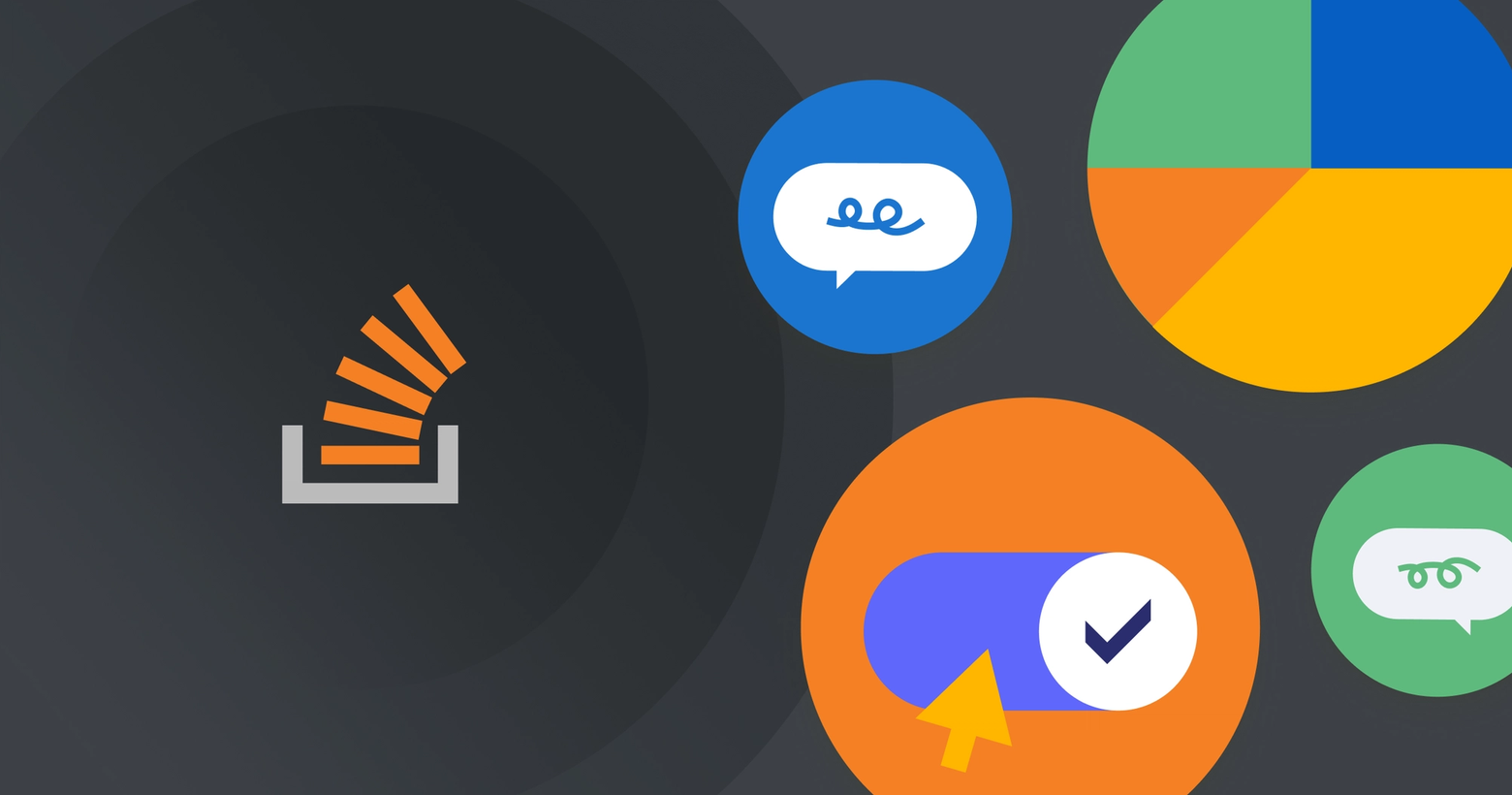As the digital landscape evolves, understanding this community’s needs, desires, and pain points becomes increasingly vital. Research at Stack Overflow is focused on addressing the unique challenges and improving the experience of our users. In this post, we will explore the roadmap set forth by our User Experience team, highlighting their mission to leverage insights and drive innovation. Join us as we delve into what we learned last quarter and hope to learn this quarter, all in hopes of transforming how developers learn, collaborate, and grow.
Last quarter’s projects
Motivations, incentives, and gamification
Our research into user motivations has given us a clear understanding of why people come to the site and what keeps them engaged or pushes them away. Most users arrive with a pre-existing motivation—they need help solving a problem. Whether they stick around and engage more depends on their early experiences. When users have positive interactions, their motivation can evolve from seeking help to actively learning and eventually giving back. Below you’ll find some key takeaways from that research:
- Motivations are multifaceted. Users rarely engage for just one reason. Many seek to learn, improve their skills, and see their progress, or help others, as a way to give back and gain recognition in the community. Ultimately, feeling a sense of accomplishment, no matter the task, is a fundamental driver.
- Barriers discourage deeper engagement. Even when users have the desire and skills necessary to contribute, they often face obstacles that prevent deeper engagement. High barriers to entry, like reputation requirements, make it hard for newcomers to get started and prevent skilled users from engaging in tasks like curation. Friction in the system, such as negative interactions or lack of recognition, further discourages participation.
- Recognition is more than just points. While points can be a helpful measure and offer a quick dopamine boost, they don’t fully capture the deeper sense of accomplishment, validation, and appreciation that users seek. True recognition is about validating contributions, showcasing credibility, and acknowledging users' impact within the community.
- Confidence fuels contribution. Positive feedback and a sense of accomplishment encourage users to participate. Users stay engaged when they understand the rules, see the impact of their actions, and experience meaningful growth.
We see opportunities to better support users at different stages, particularly in helping more users make the shift from seeking help to giving back. By removing unnecessary barriers to participation, exploring clearer progress indicators, recognizing behind-the-scenes contributions, and ensuring fairness, we can create an environment that encourages deeper engagement. We’ll be working with teams to turn these insights into meaningful improvements, making sure that gamification elements don’t overshadow the platform’s focus on professional development and purposeful contributions.
GitHub Copilot integration research
Our newest researcher ran a quick project to acclimate with research here at Stack Overflow. We wanted to learn more about opportunities for the future of our GitHub Copilot Chat integration. At a high level, we discovered that developers still don’t fully trust LLMs for complex coding problems, but they do trust Stack Overflow. We have an opportunity to close the gap by presenting Stack Overflow content alongside LLM responses, enabling developers to verify the accuracy of answers and providing them with tools to troubleshoot independently. To achieve this, we must enhance our search capabilities and ensure the information surfaced is accurate, useful, and contextually relevant.
Additionally, we asked if participants would be interested in posting questions to the site from their IDE. While there was some cautious interest, many expressed concerns about question quality. Specifically, they worried that without a reliable way to surface relevant Stack Overflow content in the IDE, they would continue to rely on the web to avoid duplicating questions. Given this, our research points to the need to focus on search accuracy and privacy safeguards in the coming months on our roadmap.
This quarter’s projects
New content types
Stack Overflow has matured over 17 years and with the site’s large archive of content, users are experiencing a diminishing sense of opportunity to contribute. While Q&A serves a specific purpose and is the bread-and-butter product of Stack Overflow/Stack Exchange, it can feel rigid and limiting for users who are looking for support and want to engage in other ways. Newer and younger developers are learning coding fundamentals through different methods and formats than previous generations. As a result, traditional resources like Stack Overflow may not align with how they prefer or expect to engage, contribute, and learn with the community.
There is a lot to learn and many unknowns to explore—this research will be an iterative process. As we uncover the limitations of our current Q&A platform, particularly among newer generations, we’ll refine our hypotheses and learning focus. We are approaching this work from multiple angles and look forward to hearing from you as we speak with users.
Other research this quarter
Below you’ll find the more tactical research our teams plan to tackle. Tactical research aims to inform smaller decisions. This research is typically performed by one of our designers or product managers. Some of the research you may see:
- Evaluating how users discover questions they ultimately answer
- Evaluating the Stacks editor’s usability and user experience
- Evaluating potential question and answer metadata for our API
How you can help
We need highly-engaged research participants, especially new users and users who don’t engage often. If you are this type of user or know someone who fits this description, please sign up for research invitations in your account settings! We hope to speak with you soon.
